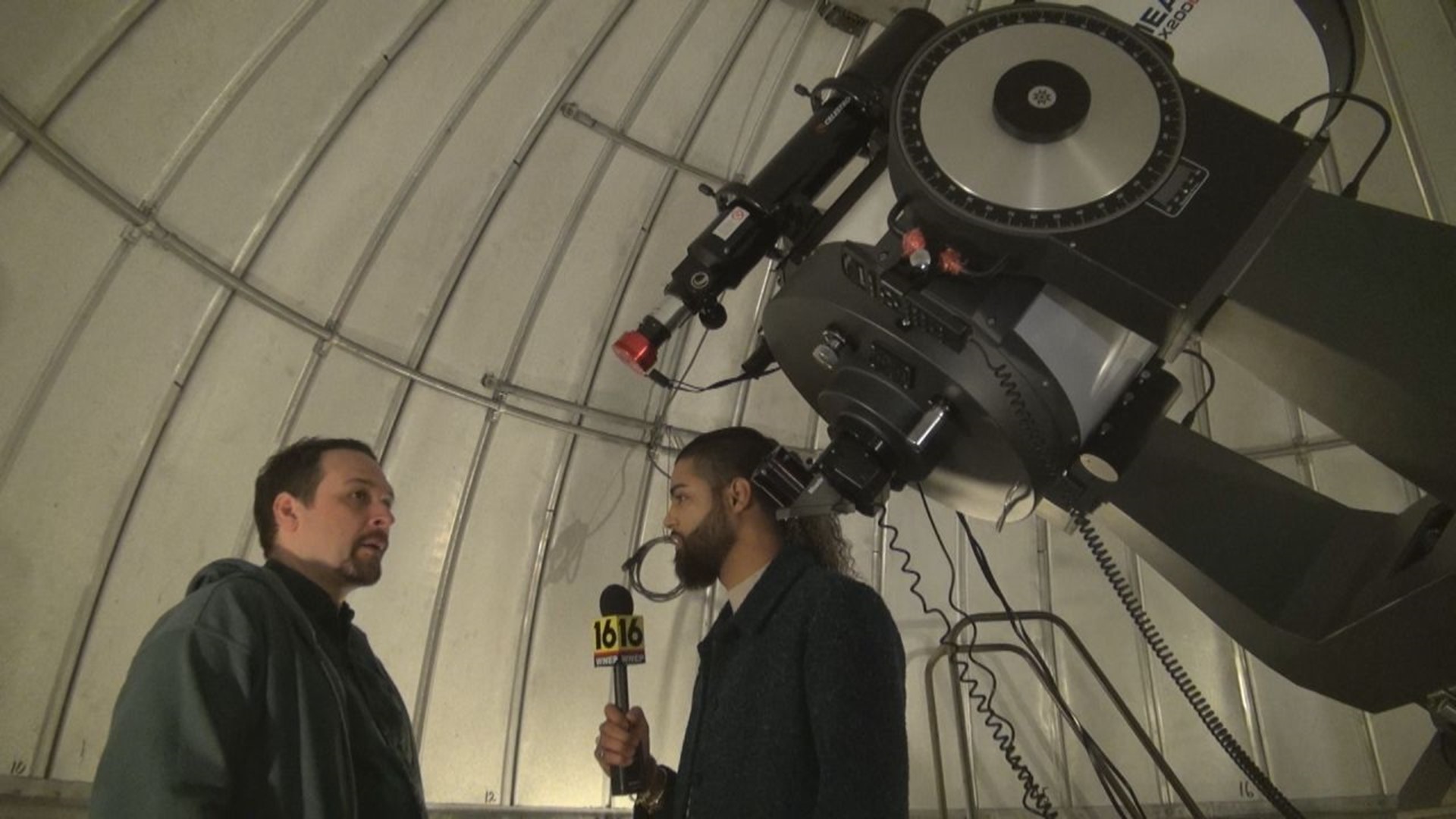PENNSYLVANIA, USA — The Great American Eclipse of 2024 is poised to plunge parts of North America, from Mexico, through the United States, and up into Canada, into darkness as the moon casts its shadow onto the Earth.
In central and northeastern Pennsylvania, we will not experience a full eclipse—when the moon completely blocks out the sun.
"You're not going to see totality here, but, I mean, the last time there was totality in Scranton was also the last time there was totality in New York City, in Manhattan, and that was in 1925. My parents saw that when they were about 10 years old," said Jo-Ann Kamichitis, Director of the Keystone College Observatory.
We will see 90 to 95% totality, with the passing moon reducing the sun to a crescent sliver. Many observatories are planning free events for the public to gather and experience this event. In Lackawanna County, Keystone College has been planning its event at the Thomas G. Cupillari Observatory for months.
"We've been working on this event, the folks from the observatory, probably since the beginning of the year or before then. This isn't our first go around; in the eclipse in 2017, we had hundreds of people, maybe even more than that," said Fran Calpin, Senior Director of College Relations at Keystone College.
"I'm expecting plenty. If anything, it's going to be in the hundreds," added Kamichitis.
At the Thomas Cupillari Observatory, several telescopes with solar filters will be available so that people can view the eclipse safely and up-close.
Kamichitis ordered about 700 glasses, which are expected to be given to the attendees at the event. Kamichitis's team is also planning on having eclipse pinhole projectors for people who come out. The event will run from 1:30 to 5 p.m.
In Luzerne County, Penn State Wilkes-Barre is planning a "Solar Eclipse Viewing Party."
"People are so excited to come out to campus if they're not already here. So our students are very excited in the sense that they will be part of this astronomical event but also that they'll be volunteering and helping those in the community experience it," said Alyssa Ellsworth, Penn State Wilkes-Barre Communications.
Along with the various activities at the viewing party, visitors can take tours of the two-level observatory.
"We're gonna have lots of great activities to do and learning experiences for people. There will be tours of the observatory," added Violet Mager, associate physics & astronomy professor.
"So we have the big mead 16-inch telescope on the top level, and when you come in, there will be a spiral staircase to go up," said Jon Belanger, Observatory Assistant at Penn State Wilkes-Barre.
Children who attend the walking science fair will receive a free copy of a brand new book about eclipses called "The Sky is the Limit," while supplies last. They also have 2000 eclipse glasses to distribute, and an 8-inch telescope with a solar filter cover will be set up to see the magnified eclipse safely.
"We're going to have a walking science fair with different stations for people to go to and learn about the eclipse and have interactive displays," said Mager.
"This is a free event and open to the public. It will be held from 2 to 5 p.m. on April 8th," added Ellsworth.
In central Pennsylvania, some Snyder County libraries will provide eclipse glasses and educational materials on the day of the eclipse.
The Rudy Gelnett Memorial Library in Selinsgrove will host an eclipse viewing party. Guests are expected to gather in the Selinsgrove Commons, right next door, to view the eclipse.
If eclipse day turns out to be cloudy or rainy, the observatories and libraries have you covered.
"Even if it rains, we're still going to have this event," said Mager.
"We'll still be up here because that's what we do. Just in case someone shows up. People are always optimistic," said Kamichitis.
The official NASA live stream of the total eclipse will also be on display.
For a link to verify if your glasses are safe, click here.
For a link of approved manufacturers by the American Astronomical Society, click here.

